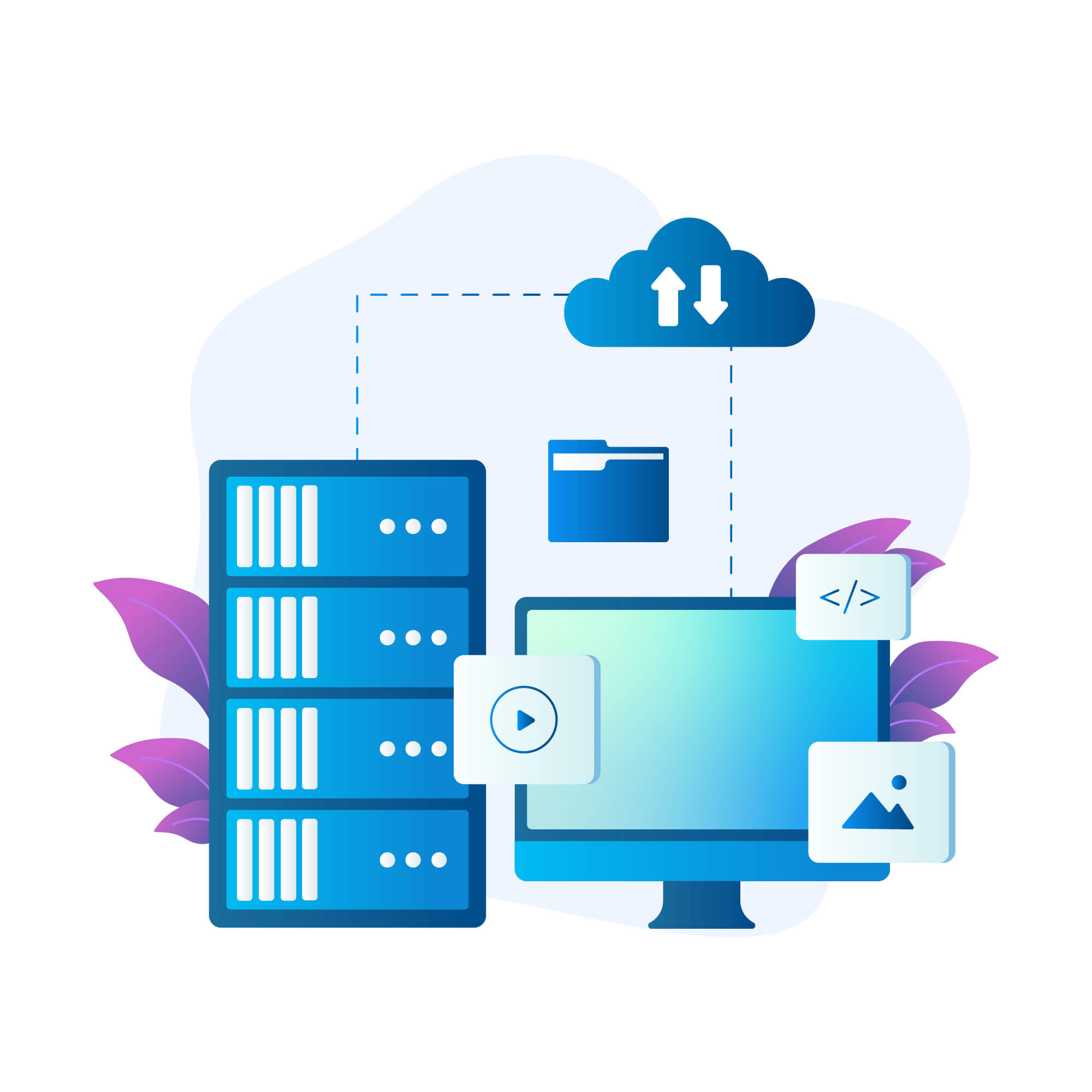
Data Migration Services
Move archives efficiently with data migration servicesEffective data migration requires professional assistance to achieve desirable outcomes. At our data migration company, we collaborate closely with business organizations to define objectives and execute them effectively. A project manager oversees critical tasks such as data migration, mock migration, and data purification to consistently deliver successful results.


Benefits of Database Migration Services
In today's business landscape, the value of data cannot be overstated. Poor data flow and mismanagement can result in significant financial losses. Our company provides data migration solutions and software migration services that can help maximize your revenue potential from your data.
We Use Leading On-Premise, Open-Source, and Cloud-Based Data Migration Tools
Our team of data migration specialists possesses vast experience across multiple industries worldwide, delivering effective business solutions utilizing well-established methodologies, practices, and digital tools for data gathering.
Open-Source Data Migration Tools
We utilize open-source data migration tools such as Apache NiFi, CloverETL, Pentaho, and Talend Open Studio for the migration of your data. These tools offer improved flexibility and quicker performance.
On-Premise Data Migration Tools
We make use of on-premise data migration tools such as IBM, SQL, Oracle, and AWS, to ensure smooth and efficient migration of your data, schema, and objects from various data sources to the cloud, even at large scale.
Cloud-Based Data Migration Tools
We utilize versatile cloud-based data migration software such as Alooma, Matillion, Snaplogic, and Fivetran for transferring data from on-premise storage or applications to the cloud.
Frequently Asked Questions
What is data migration?
Data migration refers to the process of transferring data from one system to another, whether it be from one computer to another, from an old system to a new one, or from an on-premises system to the cloud. The data may include files, databases, applications, or any other form of digital content.
Why would I need data migration services?
Data migration services are needed when a business or individual needs to move data from one system to another. This may be necessary when upgrading to a new system or moving to a cloud-based platform. Additionally, data migration services can help ensure that data is properly organized and optimized for the new system.
What is involved in a data migration project?
A data migration project typically involves several stages, including planning, analysis, design, implementation, and testing. During the planning stage, the scope of the project is defined, and the necessary resources are identified. The analysis stage involves assessing the current system and identifying potential challenges. The design stage involves developing a detailed plan for the migration process. Implementation involves executing the migration plan, and testing involves verifying that the migration was successful.
How do I choose a data migration service provider?
When choosing a data migration service provider, it is important to consider factors such as the provider's experience and expertise, the level of customer service and support offered, and the cost of the service. Additionally, it may be helpful to read reviews and testimonials from other customers to gauge their satisfaction with the provider.
How long does a data migration project typically take?
The duration of a data migration project depends on a variety of factors, including the amount of data being migrated, the complexity of the systems involved, and the level of testing required. Smaller projects may take only a few days, while larger projects can take several weeks or even months.

